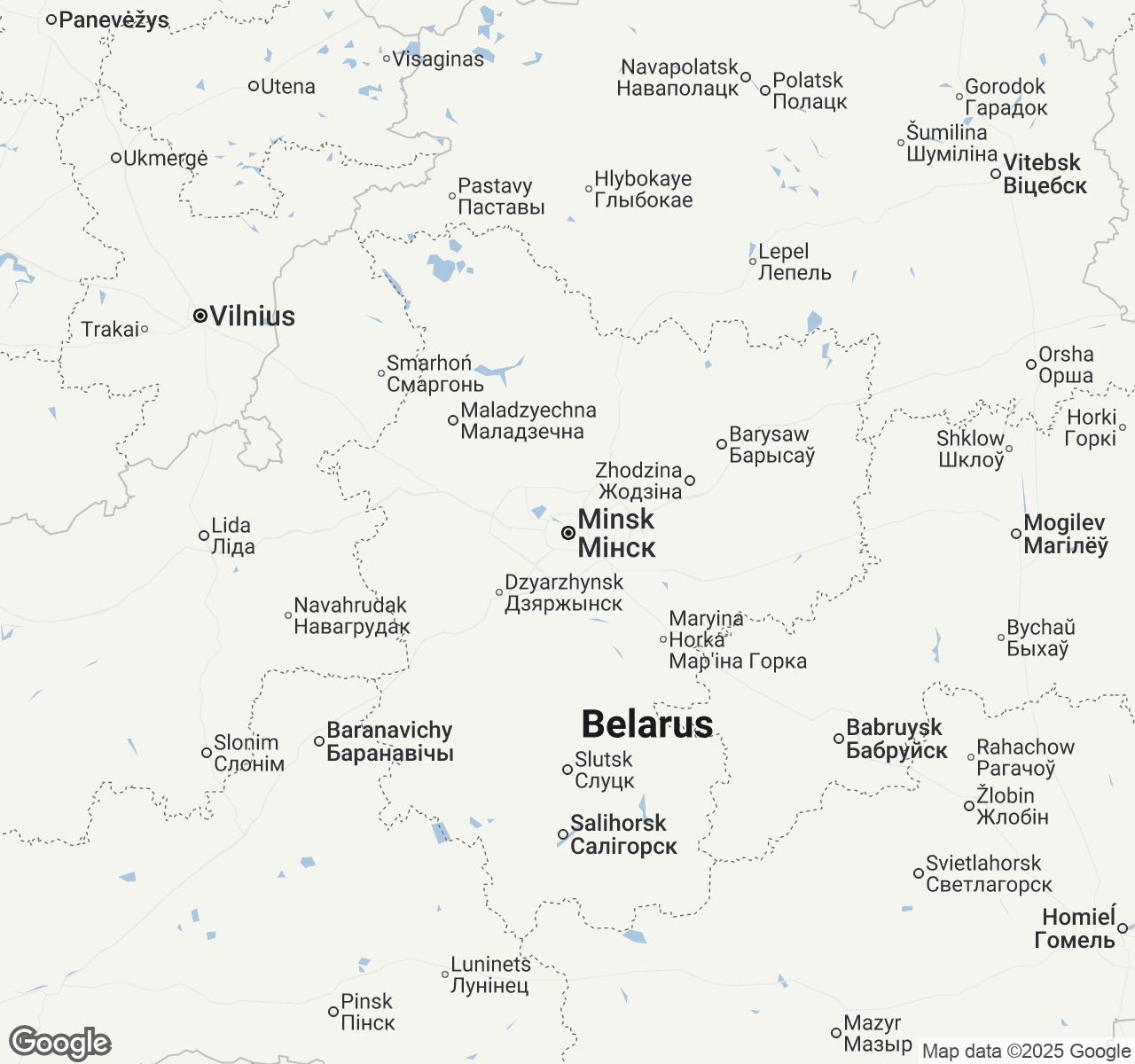
Things to Do in Minsk
Discover the best of Minsk
Plan Your Trip
Essential guides for timing and budgeting
Top Things to Do in Minsk
Discover the best activities and experiences. Book now with our trusted partners and enjoy hassle-free adventures.
Explore Minsk
Belarusian State Museum Of The History Of The Great Patriotic War
City
Cathedral Of Saint Virgin Mary
City
Chelyuskinites Park
City
Gorky Park
City
Independence Square
City
Kgb Museum
City
Minsk Arena
City
Minsk Sea
City
National Library Of Belarus
City
Nemiga District
City
Oktyabrskaya Street
City
Old Town
City
Palace Of The Republic
City
Trinity Suburb
City
Victory Square
City
Your Guide to Minsk
About Minsk
Minsk emerges from its complex past like a phoenix, blending Soviet grandeur with contemporary European sophistication in ways that surprise and enchant visitors. The Belarusian capital unfolds along tree-lined boulevards where monumental Stalinist architecture stands proudly beside gleaming modern developments, creating an urban landscape that feels both familiar and utterly unique. Here, babushkas sell fresh flowers outside bustling cafes where young professionals sip artisanal coffee, while the Svislach River winds peacefully through green parks that offer respite from the city's purposeful energy. Minsk's soul reveals itself in unexpected moments: the warm hospitality of locals eager to share their culture, the vibrant nightlife that pulses through converted Soviet-era buildings, and the profound sense of resilience that permeates every cobblestone in the atmospheric Old Town. This is a city where history lives and breathes, where every monument tells a story, and where the future is being written with quiet determination and surprising creativity.
Travel Tips
Transportation: Purchase a unified transport card at metro stations for buses, trolleys, and the efficient metro system. Taxis through Yandex.Taxi app are reliable and affordable. The city center is walkable, but distances between attractions can be deceptive.
Money: Use Belarusian rubles (BYN); exchange money at official exchange offices or banks, never with street vendors. Credit cards work in hotels and upscale restaurants, but carry cash for markets, public transport, and local eateries.
Cultural Respect: Dress modestly when visiting churches and remove hats. Avoid photographing government buildings or uniformed personnel. Learn basic Russian or Belarusian greetings—locals appreciate the effort and respond warmly to respectful foreign visitors.
Food Safety: Tap water is safe to drink. Try traditional draniki (potato pancakes) at Soviet-era canteens for authentic experiences. Avoid street food from unlicensed vendors; stick to busy restaurants and established markets like Komarovsky Market.
When to Visit
Minsk's continental climate offers distinct experiences across four seasons. Summer (June-August) brings warm temperatures of 18-25°C with occasional rainfall (60-80mm monthly), perfect for exploring parks and outdoor cafes, though expect peak pricing with hotel rates 40-50% higher. The White Nights Festival in June and Minsk City Day in September offer cultural highlights. Spring (April-May) and early autumn (September-October) provide ideal conditions with temperatures of 10-20°C, moderate rainfall, and 20-30% lower accommodation costs—perfect for walking tours and museum visits. Winter (December-March) transforms the city into a snowy wonderland with temperatures from -8°C to -2°C. While harsh, this season offers the lowest prices (50-60% below peak), festive Christmas markets, and authentic Soviet-era atmosphere in heated cafes. January brings the Minsk International Film Festival. Late autumn (November) sees unpredictable weather but rock-bottom prices. Photography enthusiasts should visit during the golden autumn (late September-early October), families prefer summer despite crowds, while budget travelers find January-February ideal. Business travelers benefit from spring and early autumn's mild weather and moderate pricing.

Minsk location map